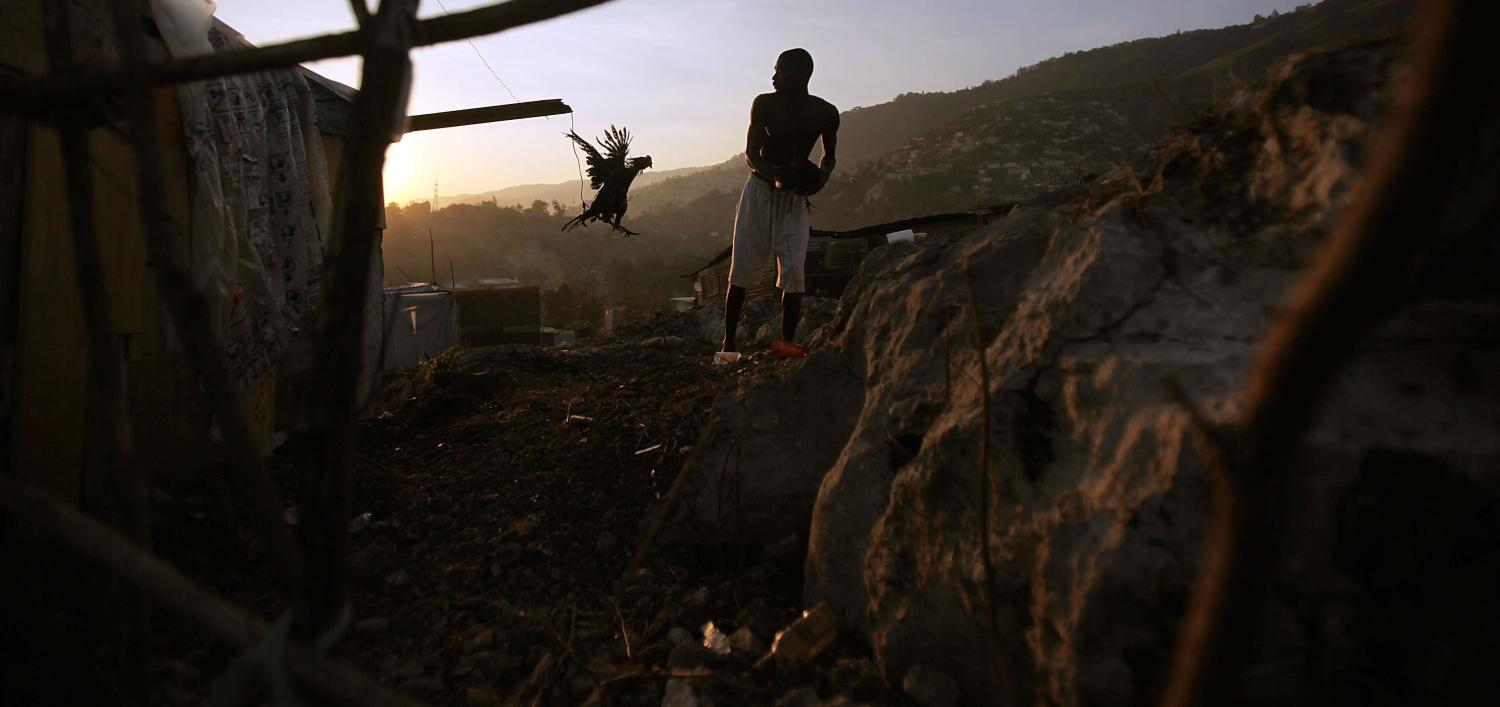“Just the tip of the iceberg.”
This is a phrase used repeatedly to describe the headline-grabbing sexual misconduct allegations against senior Oxfam staff in Haiti in 2011. Sure enough, many more reports have followed. Some 26 (as yet unnamed) organisations have so far reported 80 incidents to the UK’s Charity Commission.
With the British aid sector haemorrhaging trust and donations, the boards of aid organisations everywhere should be put on notice: get governance right, because the “iceberg” is coming and it is a huge, sector-wide problem.
First, let’s be clear. Very few aid workers commit sexual violence or misconduct, and aid does vast amounts of good in the world. We need more of it, not less.
But tragically, aid is needed to solve the very problems that make aid work attractive to perpetrators of sexual abuse and exploitation. An international aid uniform offers good camouflage for a sexual predator on hunting grounds broken by conflict, disaster, and poverty.
Institutionalised abuse tends to happen when there is an entrenched power disparity between perpetrator and victim. It happens when opaque operating practices impede oversight and accountability; within cultures of looking the other way; and when barriers to legal accountability are high. The worst abuse is enabled when victims’ populations are dehumanised.
The conflict zones, displaced populations, extreme poverty, and geographical remoteness that define aid work bear all of these conditions to an extreme degree. Aid work has all of the risk factors – on steroids.
There are few relationships involving a greater power disparity than that between a salaried expatriate with per diems and food rations in his pocket and an orphaned child in a displaced persons’ camp, or a widowed mother whose children have no shelter.
Aid work tends to take place in the unfortunate gaps between national, regional, and international regimes. Oxfam’s failure to report allegations to Haitian authorities was inexcusable, but its legal advice was probably correct: “It was extremely unlikely that reporting these incidents to the police would lead to any action being taken.” Unfortunately, reporting them to Oxfam’s management didn’t lead to much action either.
Even in the most permissive environments, with the most robust rule of law and clearest legal measures in place – on the streets of London, say, or New York, or Sydney – the law is a profoundly imperfect means of preventing sexual exploitation and abuse, particularly when it occurs within an opaque institutional setting. Think churches, schools, prisons, or Hollywood.
So what should the boards of aid organisations do? If you are the director of an international non-profit, what action should you be taking in the boardroom?
First, an aid organisation needs a robust governance framework that addresses sexual misconduct and violence as a problem of institutionalised abuse in a sector bearing uniquely high risk. The problem is not of a few bad apples which require better vetting.
This framework should learn from other institutional contexts. Although there is no shortage of standards, agreements, and guidelines for preventing sexual misconduct and abuse, or addressing it when it occurs, the means for embedding these measures in practice are patently inadequate. Once a governance framework is in place, it must be respected and followed in an organisation in the same way as measures to prevent fraud and other kinds of financial misconduct.
Second, it would be a mistake to think of legal reforms as a silver bullet, or even as a big part of the answer. The law is a necessary but insufficient instrument for dealing with sexual exploitation and abuse even under the best conditions; as should be clear by now, aid work happens in the least permissive legal environments.
Aid organisations must be serious about non-legal means of transparency and accountability. Monitoring and reporting cannot merely be mandated, it must be actively resourced. Performance reviews must hold senior executives accountable for an organisation’s practices.
Whistle-blowers must also be protected. The fundamental purpose of an aid organisation is to help – to aid – the vulnerable. So it’s crucial to protect the protectors in an organisation. Those with the courage to raise the alarm too often do so at considerable risk to their careers.
Third, when investigations are required, they must be trauma-sensitive. The UN’s experience with sexual violence committed by its military and civilian peacekeepers, which includes too many cautionary tales of survivors re-traumatised by repeat interviews and untrained investigating personnel, is instructive.
An otherwise well-intentioned drive to hold perpetrators to account should not come at the expense of victims. This implies new training requirements not only for organisations but also for specialists in sexual violence–related investigations, medical services, and psychological care.
Fourth is the need to cooperate. Sector-wide cooperation is the best way to reduce organisations’ risk. In high-risk field locations, cooperation can systematise monitoring, reporting, and investigation, and this in turn can reduce any one organisation’s costs, minimise duplication, fill gaps, and better serve host societies by avoiding fragmentation.
The sector also needs an international, independent ombudsperson. I’ve argued elsewhere that UN peacekeeping needs this kind of accountability mechanism.
Even better would be a well-resourced ombudsperson whose oversight role covers the full spectrum of international personnel. This approach would put the protection of vulnerable people first, ahead of the interests and politics of the international aid, development, humanitarian, peacekeeping, and peacebuilding sectors.
Finally, organisations must build an evidence base to understand what works to prevent sexual misconduct and abuse. Reporting should be standardised and publically available, and preventive measures should be similarly transparent.
In addition to helping diagnose and track impact – an essential task in itself – being transparent will help build and sustain the trust on which the future of aid organisations depends.
